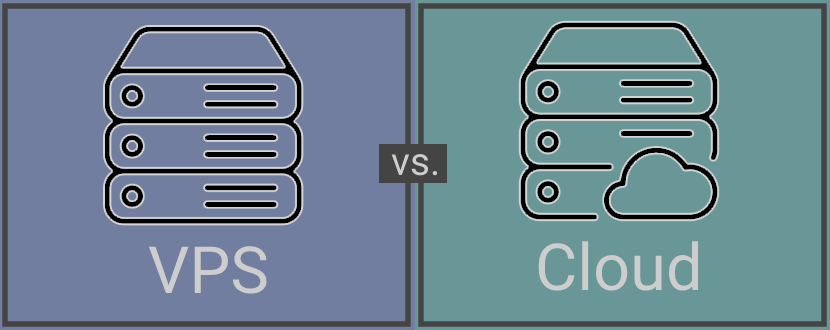Virtual Private Server (VPS) vs. Cloud Service: Pros and Cons
Posted on May 26 2023 by Justin Court · 3 minute read

When it comes to choosing a hosting solution, there are a number of factors to consider. Two of the most popular options are VPS and cloud services. Both have their own advantages and disadvantages, so it's important to weigh them carefully before making a decision.
What is a VPS?
A VPS is a virtual machine that is hosted on a physical server. This means that you share the physical server with other users, but you have your own dedicated virtual environment. VPSs offer a number of benefits, including:
- Increased performance and reliability: Because you're not sharing the physical server with as many users, you'll have more resources available to you. This can lead to improved performance and reliability.
- Greater flexibility: With a VPS, you have more control over your environment. You can choose the operating system, the amount of RAM, and the amount of storage that you need.
- Lower cost: VPSs are typically more affordable than dedicated servers.
What is a cloud service?
A cloud service is a computing platform that is delivered over the internet. This means that you don't need to own or manage any hardware. Cloud services offer a number of benefits, including:
- Scalability: Cloud services are highly scalable, so you can easily add or remove resources as needed.
- Reliability: Cloud services are designed to be highly reliable, so you can be confident that your applications will be available when you need them.
- Cost-effectiveness: Cloud services can be very cost-effective, especially for businesses that have fluctuating traffic patterns.
Pros and Cons of VPS
Pros:
- Increased performance and reliability: VPSs offer better performance and reliability than shared hosting. This is because you're not sharing the physical server with as many users.
- Greater flexibility: With a VPS, you have more control over your environment. You can choose the operating system, the amount of RAM, and the amount of storage that you need.
- Lower cost: VPSs are typically more affordable than dedicated servers.
- Management overhead: VPSs require some management overhead. You'll need to keep the operating system up to date and install any necessary software.
- Security: VPSs are not as secure as dedicated servers. This is because you're sharing the physical server with other users.
- Limited resources: VPSs offer limited resources. If you need a lot of resources, you may need to consider a dedicated server.
Pros and Cons of Cloud Service
Pros:
- Scalability: Cloud services are highly scalable, so you can easily add or remove resources as needed.
- Reliability: Cloud services are designed to be highly reliable, so you can be confident that your applications will be available when you need them.
- Cost-effectiveness: Cloud services can be very cost-effective, especially for businesses that have fluctuating traffic patterns.
- Vendor lock-in: Once you start using a cloud service, it can be difficult to switch to another provider. This is because cloud services typically use proprietary technologies.
- Security: Cloud services are not as secure as on-premises solutions. This is because your data is stored on someone else's servers.
- Compliance: Cloud services can be difficult to comply with certain regulations, such as HIPAA and PCI DSS.
Choosing the Right Solution
The best way to choose between a VPS and a cloud service is to consider your specific needs. If you need a high-performance, reliable, and cost-effective solution, then a cloud service may be the best option for you. If you need more control over your environment and are willing to manage the associated overhead, then a VPS may be a better choice.